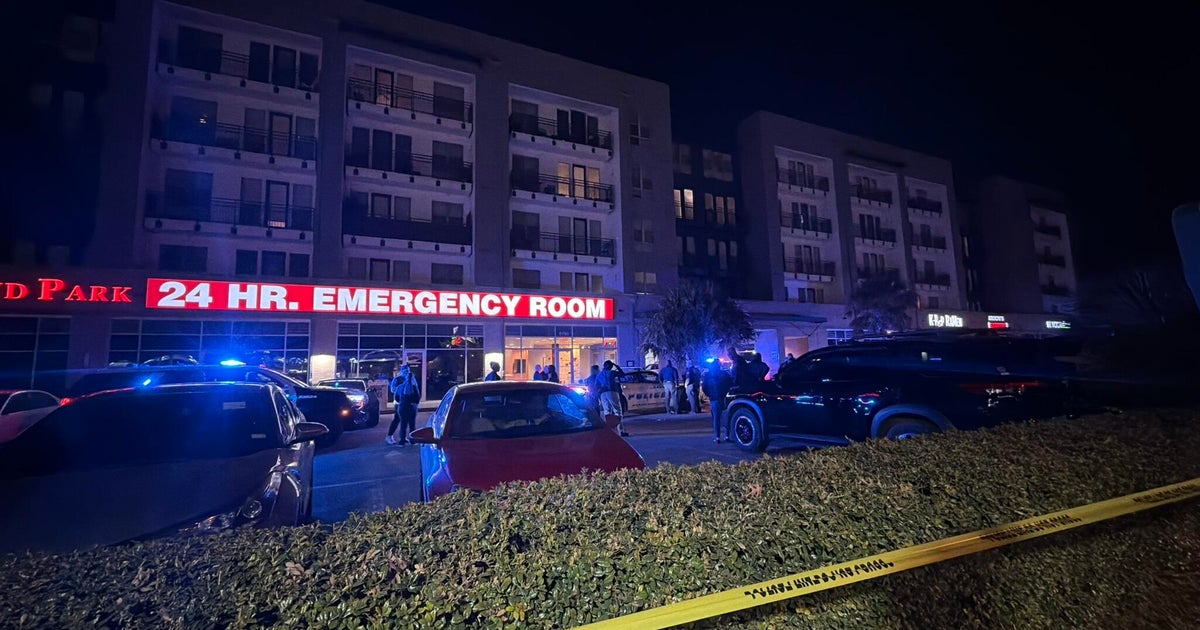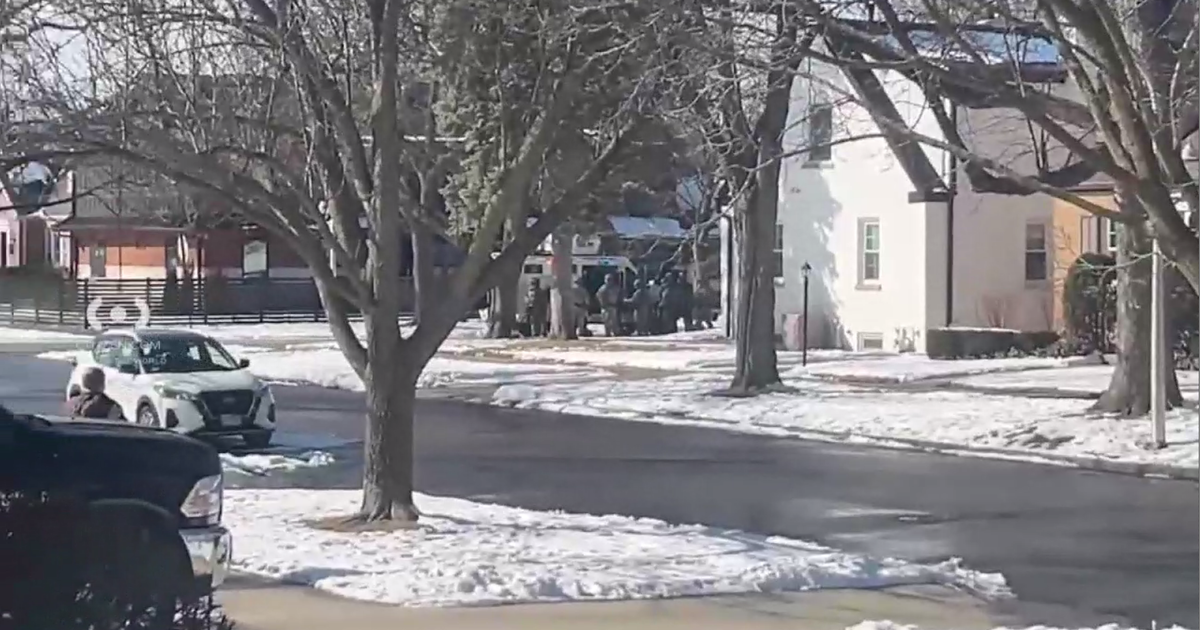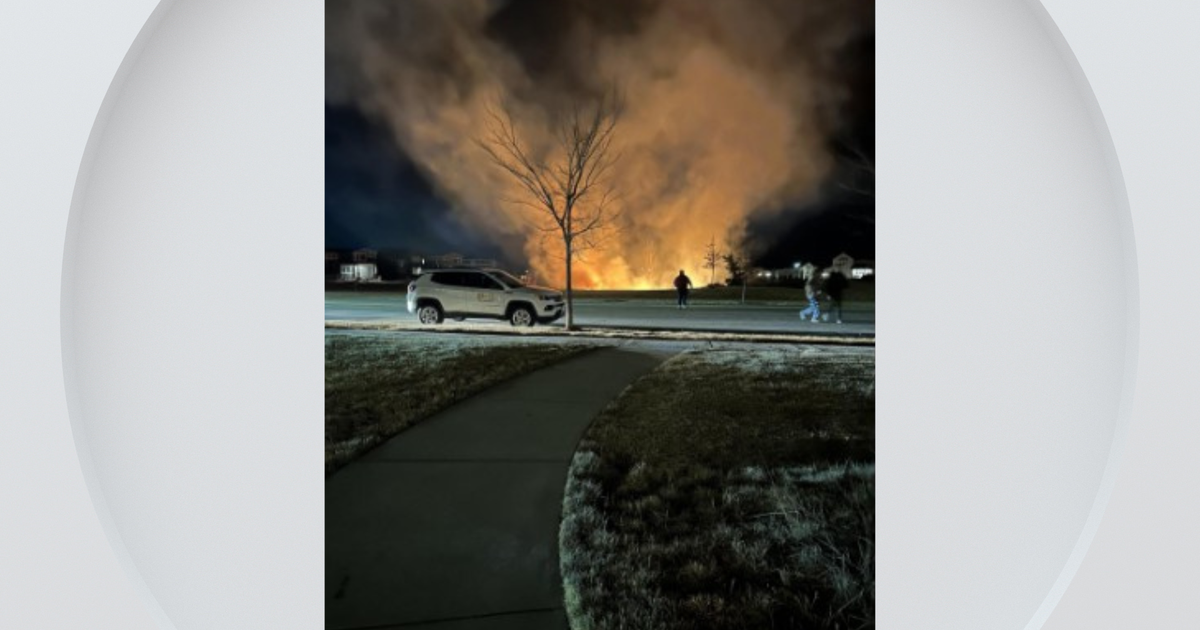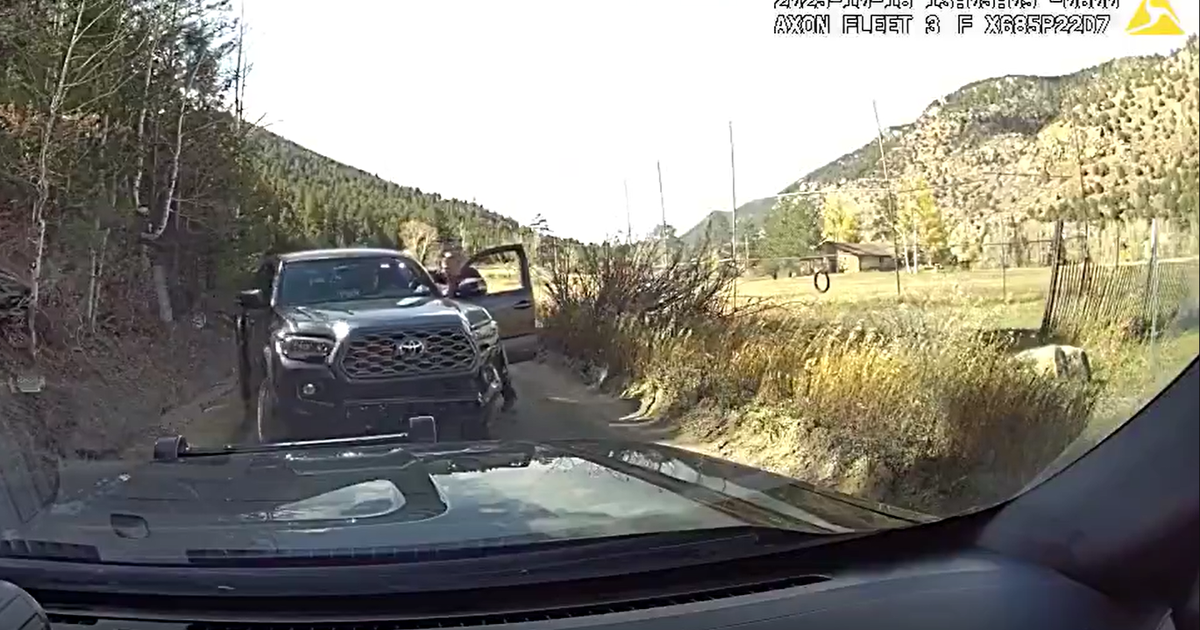New watchdog report underscores CPD search warrant failures, inability to track wrong raids
CHICAGO (CBS) -- The Chicago Police Department systemically fails to properly plan, execute and track police raids, many of which involved officers raiding the wrong homes of innocent people, according to a new report that echoes what CBS 2 has been reporting for several years.
The city's Office of Inspector General (OIG) issued its final report on CPD's search warrant processes on Wednesday, finding police still can't track the full extent of wrong raids because of incomplete and decentralized record keeping.
"There has not been an effective mechanism to capture all wrong raids," Inspector General Deborah Witzburg told CBS 2 Investigator Dave Savini. "And you can't improve what you can't track, and so that inability to capture a complete universe has really hindered the department's ability to improve its practices in this area."
Witzburg said that the records CPD has kept regarding residential search warrants are still kept on paper, and not stored in a single central location, "sometimes just held on to by the person who worked on the search warrant," making them difficult to track.
"They're in somebody's desk drawer, or they're in a file cabinet somewhere, or they're in a banker's box in a storage room somewhere, and naturally that sort of decentralized and incomplete maintenance of those records prevents good review and oversight of the process," she said.
Even many of the records her office was able to find were incomplete, and missing information that should have been included.
It's a problem at CPD that isn't just limited to search warrant records.
"These are problems that exist across many kinds of police records, but in the context of search warrant files," Witzburg said.
The report also faulted a lack of pre-raid training, finding in some cases police were not given the proper resources or the time to make sure they had targeted the right homes. Computer checks and property record checks were also not being done on a consistent basis. Supervision of raid teams at times also lacked adequate fact checking before police repeatedly busted down the doors of innocent people.
"We found that there were insufficient pre-service investigations; that the work that CPD did to investigate possible criminal activity leading up to their seeking a search warrant was inadequate," Witzburg said. "Pre-service investigation is a critical piece of the process here. The work that the police do before they show up at somebody's door is what is the only thing that will prevent bad outcomes and will allow the service of warrants to be an effective and productive law enforcement tool."
The OIG began auditing CPD's use of search warrants in 2019. The review was prompted by CBS 2's extensive reporting that uncovered how officers fail to vet and verify tips from confidential informants.
In dozens of cases, CBS 2 found, informants gave police inaccurate addresses. Without checking, officers often took their word. The Cook County State's Attorney's Office and judges signed off on these warrants, and with those documents in hand, officers raided the wrong homes in more than 50 instances, CBS 2's analysis shows. Most of the victims CBS 2 interviewed are Black or Latino.
Several times, officers pointed guns at children, traumatizing them – like in the case of 9-year-old Peter Mendez, whose home was wrongly raided in 2017. In another case, police handcuffed a child. And in what may be the most infamous case in Chicago, CBS 2 reported the raid on the home of innocent social worker Anjanette Young. Officers handcuffed her while she was naked, despite repeatedly telling them they were in the wrong place dozens of times.
As part of its final report on its audit of CPD search warrants, the OIG analyzed residential search warrants from 2017 through 2021, as well as a sample of negative search warrants from 2017 to 2020. Negative search warrants occur when police execute a warrant, but do not make an arrest or seize any evidence as a result. The audit also involved the review of training materials, policies as well as interviews with supervisors and officers who obtain warrants, among other members of CPD.
"I think the important takeaways from my perspective are that historically and to date, there have been vast and critical shortcomings and failures in CPD's processes and policies around the service of residential search warrants," Witzburg said.
Here's what the OIG found, in part:
- CPD mainly relies on complaint records as its primary method of tracking these incidents, which the Inspector General says "hindered CPD and the public's ability to measure and understand the issue of wrong raids in Chicago." CBS 2 previously reported how CPD has never been able to quantify the extent of the problem. After our team aired the damning video of Young's home being raided, then-Mayor Lori Lightfoot claimed CPD developed a system to track raids like these. But in reality, policy loopholes continued to leave many unaccounted for and untracked. "CPD's current system for reporting and tracking wrong raids has not effectively captured every wrong raid incident," the OIG wrote in its report.
- Search warrant documentation is not centralized and often incomplete. For example, only 14 percent of the files analyzed by the OIG contained documentation of pre-service investigative results establishing the identity of the subject named in the warrant.
- In its audit of negative search warrants, the OIG also found officers didn't take "sufficient steps" to ensure they were serving the warrant at the correct location.
- CPD's investigations before serving warrants "have been hindered by units' varying access to investigative tools, resources to register confidential informants, and levels of experience in developing search warrants." This isn't the first report the OIG has released related to wrongful police raids by CPD. Last year, the city's top watchdog put out a blistering report about how the city handled the aftermath of the botched police raid on Young's home.
While the report does not provide recommendations, the OIG wrote in order for improvements to be implemented effectively, CPD will need to resolve the issue of inconsistent access to investigative tools for officers, as well as improve tracking and record keeping.
"The new policies that CPD has proposed show promise to address some of those critical shortcomings. Those improvements will be only as good as their implementation and enforcement," Witzburg said.
CBS 2 contacted CPD Wednesday asking whether these changes have been implemented. A spokesperson provided the following statement:
The Chicago Police Department continues to work on strengthening our search warrant policy, including mitigating risks associated with search warrants. The OIG report addressed data and events up to 2021. Since that time, CPD has made numerous revisions to policy and training, including greater supervision and accountability within the process of search warrant development and service. The policy also outlines the documentation that is required before and after search warrant service. Following search warrants that are identified as wrong raids, the Department conducts critical incident after-action reviews.
We will continue to review the search warrant policy in order to make adjustments based on ongoing community input and from the Consent Decree review processes. A revised search warrant policy is currently up for public comment through July 10, 2023. Based on the input received on our current search warrant policies, CPD anticipates sharing with the public later this summer further opportunities for community input.
Witzburg said she would welcome City Council hearings on the report's findings. Any three aldermen could arrange for a special City Council meeting for a specific purpose.
The OIG issued two earlier reports as part of its audit of CPD search warrants. In January 2021, the inspector general's office recommended CPD make critical changes, to create accountability in a system that has lacked it for years. Then-Police Supt. David Brown accepted their recommendations and promised to make those changes.
Four months later, the OIG issued a report finding Black men were the targets of CPD search warrants far more often than anyone else from 2017 through 2020. That report also highlighted inconsistencies in how CPD determines if a raid was successful, and shortcomings in the tracking of key data such as names and addresses.
In January of this year, CPD publicly posted draft revisions to its search warrant policy for public review and comment, which the OIG said "hold the potential to vastly improve the Department's tracking of wrong raids and its ability to use that data to inform improvements to its search warrant service."








